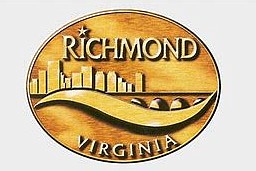City Council votes to acquire more land for slave memorial
Jeremy M. Lazarus | 1/14/2021, 6 p.m.
Despite objections from the landowner, Richmond City Council cleared the way for Mayor Levar M. Stoney’s administration to buy 1.75 acres of private property in Shockoe Bottom to provide extra space for a proposed Enslaved African Heritage Campus.
The 9-0 vote Monday night took place as the council also approved the first dedicated stream of funding to the city’s Af- fordable Housing Trust Fund to assist developers in creating lower-cost homes and apartments.
The nine-member governing body also approved a resolution calling for an end to discrimination against gay and transgender people at homeless shelters in Richmond.
Ahead of the vote, attorney Stephen J. Clarke told the council that the landowner, the Loving family whom he represents, opposes the forced sale of the land to the city.
Mr. Clarke said the family was never consulted and only learned from a business report that City Hall was prepared to declare a public necessity and acquire 12 parcels the family owns that includes the former Loving’s Produce building at 1601 E. Grace St.
Under the mayor’s plan, the campus is to encompass 9 acres. The project will cost at least $38 million and is to include a museum on the site of Lumpkin’s Jail where the enslaved were held for sale; a memorial park encompassing two blocks east of Main Street Station’s railroad tracks; and a historic 18th-century burial ground for enslaved and free Black people at 15th and East Broad.
The Loving’s property includes at least six parcels in the area where the memorial park is to be developed and six parcels south of Grace Street, including the former produce building. That land is earmarked for a parking garage to serve visitors to the campus and the nearby businesses.
While the Loving family, according to Mr. Clarke, has said the land is not for sale, Sharon Ebert, the city’s chief development officer, said that City Hall would seek to negotiate a satisfactory price with the family based on an appraisal.
The new funding stream for affordable housing would come from increased taxes on renovated properties that had been enrolled in a program offering a seven-year real estate tax reduction as an incentive to rehab the property.
Beginning in fiscal year 2021-22, the Affordable Housing Fund would receive $2 million, and then an additional $2 million each year thereafter. By the 2025-26 fiscal year, the fund is anticipated to receive $10 million a year and $20 million a year by the 2030- 31 fiscal year, Ms. Ebert calculated.
City Council this year has transformed the incentive program, making it available only to developers of affordable housing units and potentially altering the money flowing into the trust fund.
Still, Ms. Ebert projected that a total of $110 million should flow into the trust fund between July 2021 and June 30, 2031, under the plan approved.
The resolution calling for homeless shelters to treat gay and transgender people with respect and dignity is a response to complaints from advocates about mistreatment such residents receive.
Several told City Council that some people prefer to sleep in their cars or on the street rather than endure the hostility they encounter in shelters from staff and other people receiving shelter assistance.
The resolution also stems from the General Assembly’s passage last year of the Virginia Values Act aimed at ending discrimination against gay and transgender individuals in housing, health care, employment and other aspects of life.








